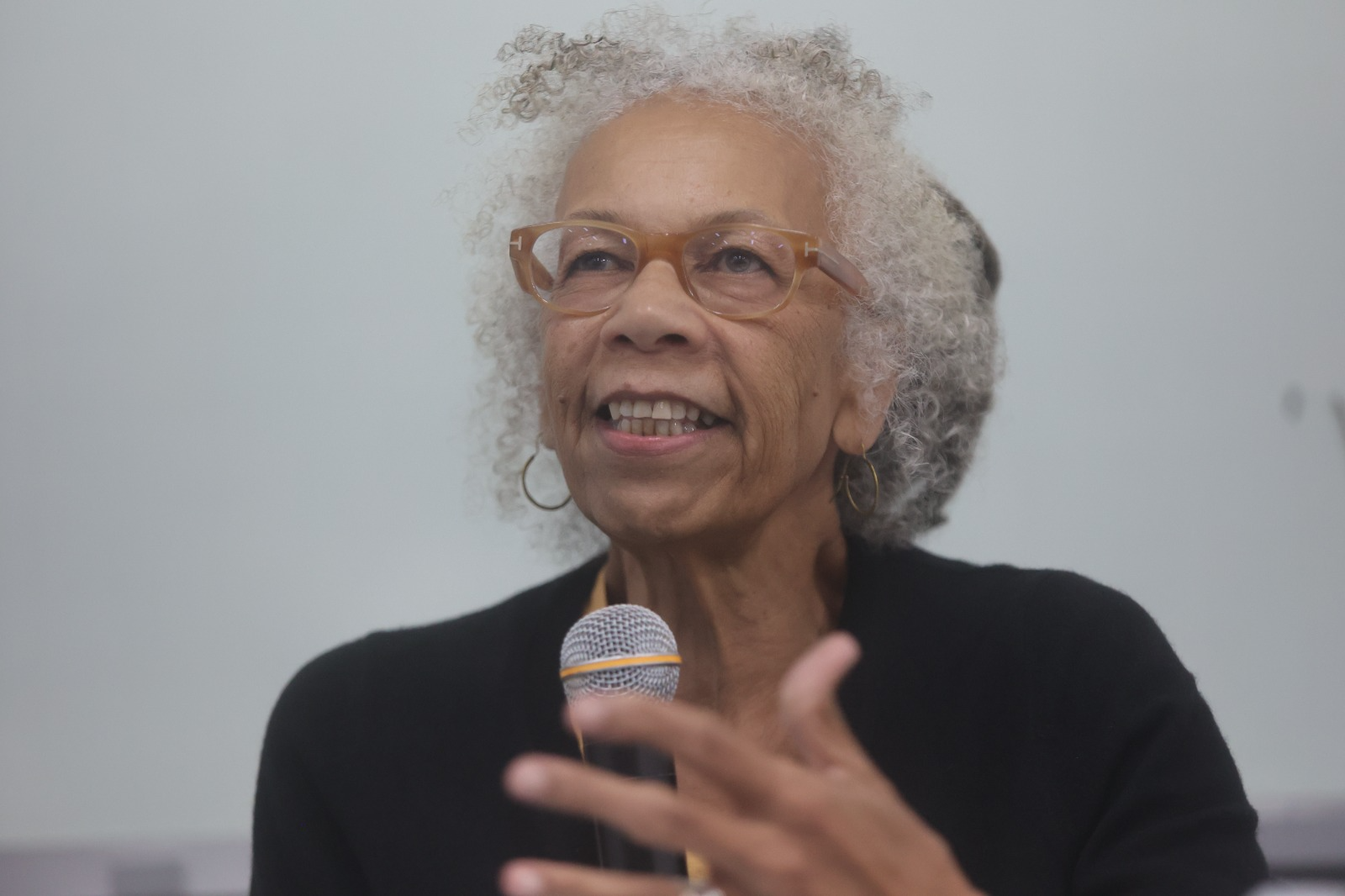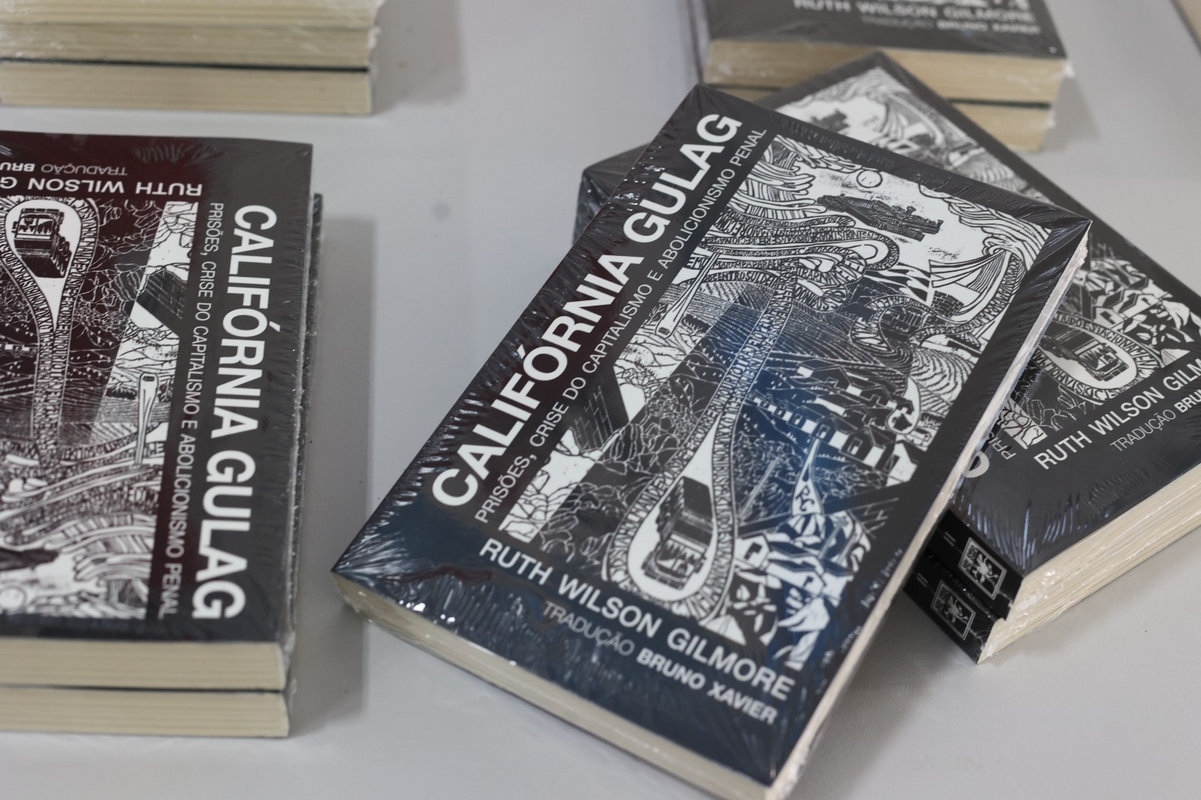NEW ABOLICIONISM
Explored by color: find out what one of the main voices in activism against punitive justice thinks
Geographer Ruth Gilmore is visiting Bahia with a circuit ‘From racial capitalism to the geography of abolition’
Published on October 22, 2024 at 06:15

Ruth Wilson Gilmore was in Salvador for the first time and addressed the differences and similarities between a new abolitionist concept Credit: Marina Silva/CORREIO
For the first time on Salvadoran soil, North American professor and geographer Ruth Wilson Gilmore brought together students, professors and researchers in the humanities, in the Raul Seixas auditorium, at the Faculty of Philosophy and Human Sciences (FFCH), at the Federal University of Bahia ( Ufba), to present his book ‘California Gulag’, translated for the first time into a foreign language. The book is based on the incarceration process in California, in the United States.
Although it has visited other Brazilian capitals such as Rio de Janeiro, São Paulo and São Luís, the activities of the circuit “From racial capitalism to the geography of abolition” take on new contours in the blackest city outside the African continent. “I always wanted to come here. It is a central place in the history of colonialism, slavery, industrialized agriculture. It is also a beautiful place because so many people from so many parts of the South Atlantic live here together and make their world”, describes the researcher.
Gilmore’s book brings together a collection of information about the relationship between the prison system and the raciality of the North American population. In it, the activist is based on the concerns of a group of black abolitionist women who seek alternatives to the prison system for the people around them. Despite being commonly associated with the struggle for liberation from the period of slavery in the 19th century, the term “abolitionism” gains a new modern reading by Gilmore, who thinks about the imprisonment of the black population through incarceration in prisons.
“Abolition is thinking that we have to change one thing, changing everything: how we live, how we interact with each other, how we make our homes, how we organize our schools, what types of cultural centers we can enjoy together. Some people already do this every day. Our job, as abolitionists, is to try to figure out how to do the obvious, which these people already do, and come together to do what needs to be done”, argues the theorist.
Gilmore also explains the concept of ‘racial capitalism’, on which his work is also based: “Capitalism demands inequality and racism is what will guarantee this.” According to the author, the solution to police violence and mass incarceration involves building collective proposals from the community.
The book by Ruth Gilmore, who was previously director of the Center for Place, Culture and Politics (CPCP), and professor in the department of Earth and Environmental Sciences, at the graduate center of the City University of New York (CUNY), is based in racial theory, economic policy and cultural Marxism.

Book by geographer Ruth Gilmore Credit: Marina Silva/CORREIO
Professor Ruth’s arrival in Brazil is designed by the Black Initiative and Editora IGRÁ KNIGA, responsible for translating and publishing the work. For the co-founder and executive director of the Black Initiative Dudu Ribeiro, the themes addressed by Gilmore’s writings are a complete reflection of the reality of the black population of Bahia. “We understand that the criminal model that affects the black population in the United States also compromises black lives in Brazil. They are all based on the idea of a war on drugs, but it is not a war against substances, but against people”, he says . “In Salvador, last Wednesday, we had 16 people murdered in a single day, in the middle of the week and they were all black men”, recalls the historian.
The presentation had simultaneous translation by geographer and professor at the Ufba Geoscience Institute Azânia Mahin. “It’s an honor for me, she’s a reference”, he celebrated during the writer’s autograph sessions.
The circuit program will continue this Tuesday (22), with a conversation about Abolitionism and the role of Art, at the Ufba Institute of Letters, starting at 2 pm. The activity includes the presence of the project ‘Corpos Indoceis, Mentes Livres’, which works on literature in the Mata Escura women’s prison, in Salvador, as an alternative way of reducing inmates’ sentences.
To expand academic barriers, the teacher must also visit the Northeast of Amaralina to dialogue with the community. The neighborhood’s Urban Social Center (CSU) will host the meeting with the Mulheres e Luta collective, starting at 6:30 pm this Wednesday (23).





